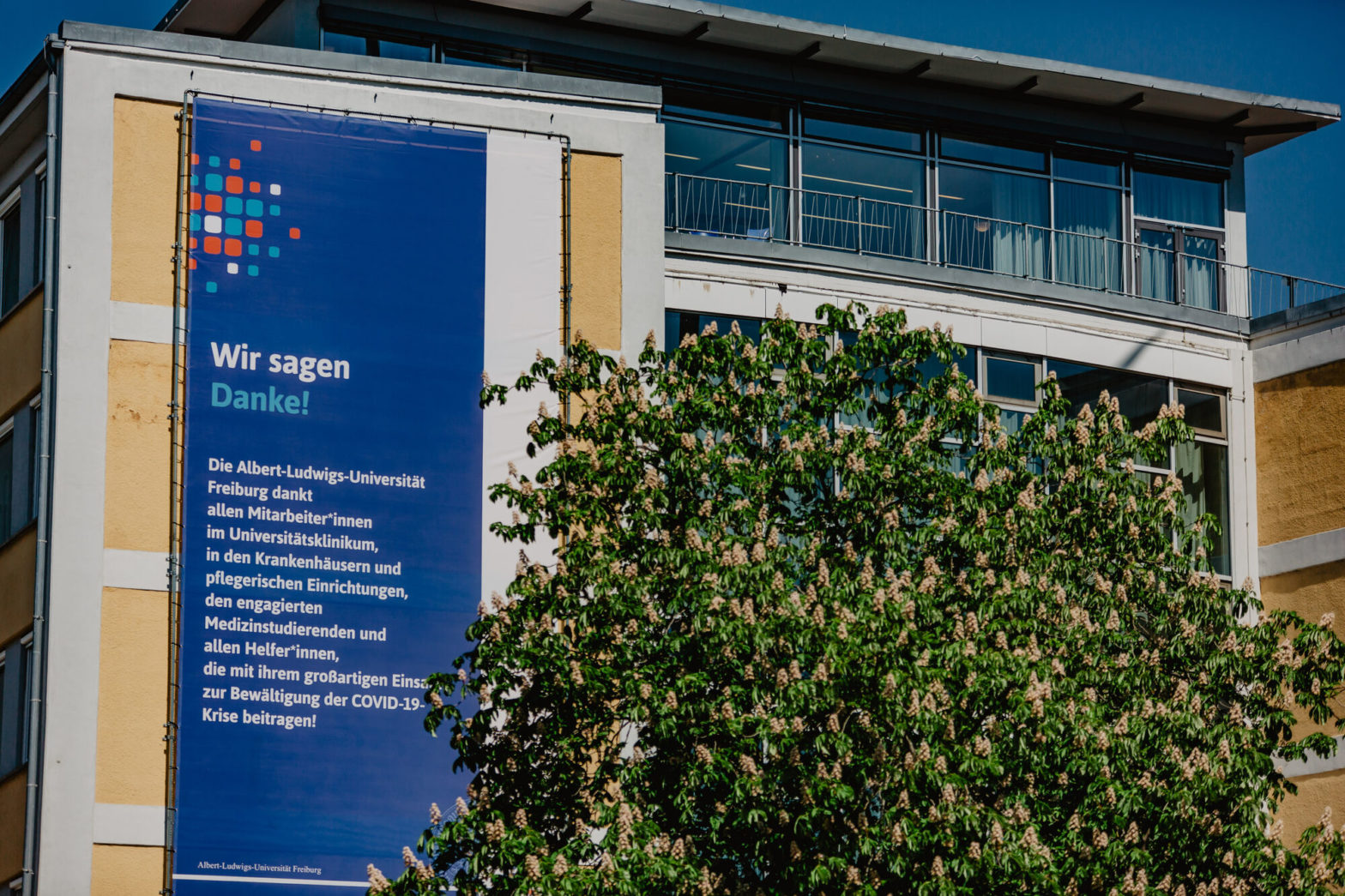We would like to inform you about current changes regarding the corona regulations at the University of Freiburg. All other applicable regulations can be found via the menu at the top of the page.
The hygiene regulations have been repealed as of 2 February 2023. This means that, in accordance with the SARS-CoV-2 Work Safety Regulations (“SARS-CoV-2-Arbeitsschutzverordnung”), all corresponding pandemic-related regulations, measures, and recommendations no longer apply. This includes regulations on mask wearing, ventilation, and distancing, as well as the obligation to report cases of infection.
The University’s recommendations in the event you experience symptoms are based on proven medical standards for the containment of infectious diseases. Anyone who has acute symptoms of a respiratory illness such as a cough, fever or aching limbs should stay at home to protect themselves and others. All other people are generally obliged to work or study, even if they test positive for a respiratory infection.
If you test positive for coronavirus without symptoms or only have mild symptoms (dry cough, slight cold) of a respiratory illness, protective measures are recommended in consultation with your supervisor or the person responsible for a University event. These include, for example, working from home or hygienic protective measures such as wearing a medical face mask.
Once the acute symptoms of a respiratory infection have passed, people can attend without being tested. A test that proves you are “in the clear” after an infection is no longer necessary.
The University management would like to thank all employees and students at the University of Freiburg for their tremendous efforts over the past few years. During the corona pandemic, all University members maintained operations under difficult conditions and, through prudent, responsible handling and compliance with the guidelines and directives, have jointly contributed to containing the incidence of infection. In addition, the University of Freiburg also made a major contribution to the region.
The “Corona Coordination Office” set up at the University of Freiburg in 2020 in the course of the pandemic was closed at the end of 2023. The Coordination Office served as a central point of contact for all matters relating to the coronavirus pandemic and ensured the implementation of legal requirements as well as hygiene and organisational measures. Following the abolition of the legal requirements and the significantly reduced risk of infection from the coronavirus, the Coordination Office ceased its activities.
The specifications and recommendations on this Website apply to all members of the University of Freiburg. The information is continuously being updated.
Whether medicine, economics, politics, culture or technology: in a video podcast, researchers from Freiburg regularly highlight aspects of the corona crisis from different perspectives.
For more information








